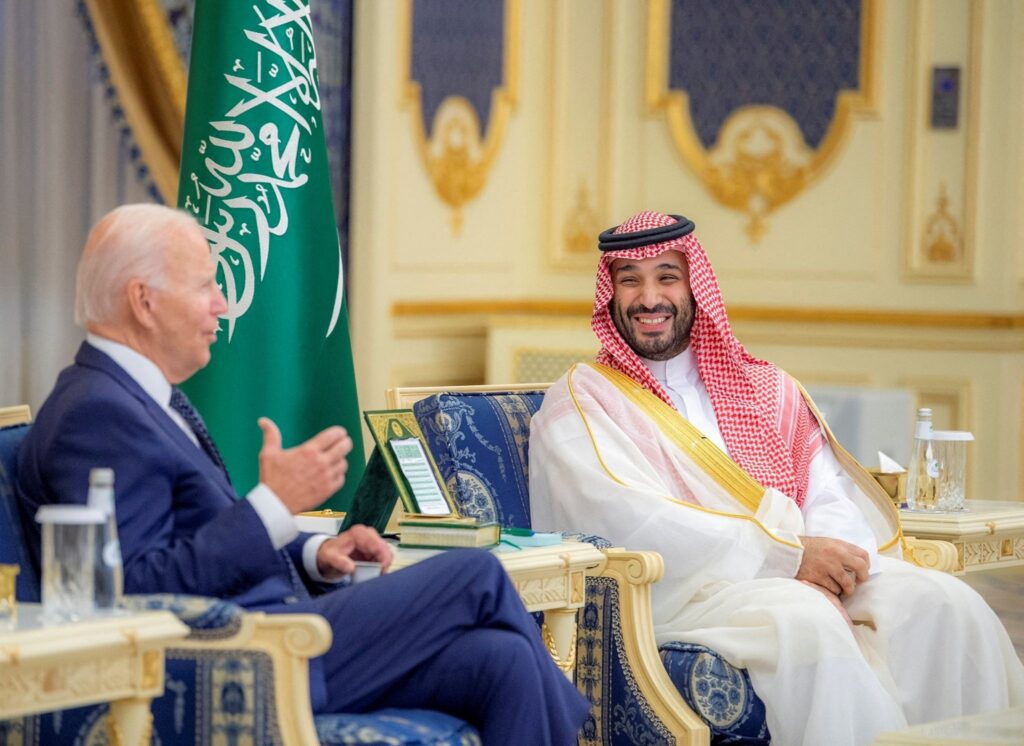Exclusive: Saudi Arabia’s Strategic Move Towards a US Defence Pact and Its Impact on the Middle East Landscape
In a groundbreaking development, Saudi Arabia is on the brink of solidifying a military pact with the United States, a move that could reshape the geopolitical dynamics of the entire Middle East. This exclusive report delves into the intricate details of this pivotal agreement, exploring the motivations, potential outcomes, and the broader implications for the region.
Saudi Arabia’s Determination to Forge a Military Pact
Sources privy to the ongoing negotiations reveal Saudi Arabia’s unwavering determination to establish a military pact with the United States. Unlike the initially sought after NATO-style defense guarantees, the current discussions lean towards a more flexible arrangement reminiscent of treaties Washington holds with Asian states. This adaptation allows for a nuanced approach, tailored to meet the unique needs and challenges of the Middle East.
The Link Between the Pact, Israel, and Palestinian Demands
A noteworthy aspect of this potential pact is its tie to diplomatic relations between Saudi Arabia and Israel. Surprisingly, the kingdom seems poised to move forward with the agreement even if Israel doesn’t make significant concessions to address Palestinian demands for statehood. This signals a strategic shift, emphasizing Saudi Arabia’s focus on securing its interests through international alliances.
Potential Models for the Pact
Insiders suggest that the pact might emulate existing U.S. agreements, such as the one with Bahrain, where the U.S. Navy Fifth Fleet is stationed. This model bypasses the need for congressional approval, streamlining the process for both nations. Additionally, Washington could sweeten the deal by designating Saudi Arabia as a Major Non-NATO Ally, a status currently held by Israel, underscoring the significance of this potential partnership.
Non-Negotiable: Binding Assurances of U.S. Protection
While the specifics of the pact are still in flux, all sources agree on one non-negotiable aspect—Saudi Arabia demands binding assurances of U.S. protection in the event of an attack. This stems from past incidents, such as the September 14, 2019 missile strikes on Saudi oil sites, which reverberated through global markets. Riyadh and Washington attributed the attacks to Iran, their regional rival, although Tehran vehemently denied any involvement.

Reshaping the Middle East: A Diplomatic Triumph for Biden
If materialized, this agreement between the world’s largest oil exporter and the United States could have far-reaching consequences, reshaping the Middle East landscape. The normalization of relations between Saudi Arabia and Israel, two historical adversaries, stands as a diplomatic feat. Furthermore, it solidifies Riyadh’s alignment with Washington, countering China’s increasing influence in the region—a significant win for President Joe Biden as he navigates international relations in the lead-up to the 2024 U.S. election.
The Broader Implications
Beyond the immediate players involved, the pact carries broader implications for regional stability and global politics. The alignment of Saudi Arabia with the United States strengthens the latter’s influence in the Middle East, potentially altering the balance of power in the region. The collaboration between erstwhile adversaries could usher in a new era of cooperation, challenging established geopolitical norms.
Conclusion
In conclusion, the potential military pact between Saudi Arabia and the United States represents a seismic shift in the geopolitical landscape of the Middle East. The intricate negotiations, the ties to Israel, and the non-negotiable demand for U.S. protection underscore the gravity of this development. As the world watches, the outcome of these talks could redefine alliances, redraw political boundaries, and shape the trajectory of international relations in the years to come.